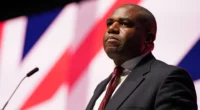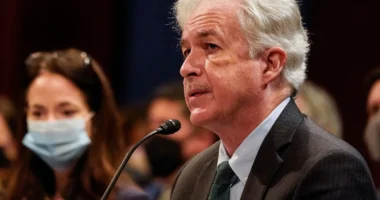Chinese President Xi Jinping has committed over 360 billion yuan (approximately $50 billion) in financial support to Africa over the next three years, marking a significant deepening of China-Africa relations. This pledge was made during the ninth Forum on China-Africa Cooperation (FOCAC) Summit held in Beijing, a high-profile event designed to set the future trajectory of China’s relationship with Africa, particularly in trade, infrastructure, and investment.
In his speech on the second day of the summit, Xi emphasized the strong bond between China and Africa, asserting that the relationship is at its best in history. Xi reiterated China’s readiness to enhance cooperation across multiple sectors, including industry, agriculture, infrastructure, and trade. His remarks reflect China’s broader ambition to solidify partnerships with developing economies as geopolitical tensions between China and the West continue to rise.
A crucial aspect of the summit was the focus on modernizing Africa’s economies through a “win-win” model of development. Xi urged both China and Africa to jointly work toward modernization that would benefit both regions, fostering an era of “open and inclusive cooperation.”
China’s Strategic Engagement in Africa
China’s growing influence in Africa is part of its larger geopolitical strategy. Since overtaking the U.S. in 2009, China has been Africa’s largest trading partner, with trade volume soaring to 1.98 trillion yuan in 2023, representing an annual growth rate of 17.2%. In the first seven months of 2024 alone, China-Africa trade reached a record 1.19 trillion yuan. China has also provided over $180 billion in infrastructure loans to African countries between 2000 and 2023, funding projects such as bridges, railways, and hydropower plants.
However, China’s lending practices, particularly through its Belt and Road Initiative (BRI), have attracted criticism. Several African nations are grappling with high levels of debt, which some economists argue could be unsustainable. For example, in 2023, Chinese lenders provided loans amounting to $4.61 billion, the highest level since 2019, contributing to the growing debt burden of some African nations.
New Financial Commitments and Initiatives
Xi’s latest financial pledge includes a breakdown of 210 billion yuan in credit facilities, 80 billion yuan in various types of financial assistance, and 70 billion yuan worth of investments by Chinese firms in Africa. Additionally, Xi announced China’s support for Africa issuing panda bonds—Chinese yuan-denominated bonds, which could offer African nations alternative financing options.
While China’s financial support has driven infrastructural growth, concerns remain about the debt risks associated with these projects. African leaders attending the summit, including South Africa’s President Cyril Ramaphosa and Kenya’s President William Ruto, are expected to engage in negotiations on loan terms to address these issues and seek more favorable arrangements.
China’s Technological Expansion in Africa
The summit also highlighted China’s desire to expand its footprint in green technologies across Africa. With growing export tariffs on green tech products like electric vehicles and solar panels in the West, Africa presents an attractive market for China’s clean energy technologies. By positioning itself as a leading supplier of green tech, China aims to align its economic goals with Africa’s growing demand for sustainable development solutions.
Challenges and Future Outlook
Despite China’s robust support for Africa, challenges remain. Xi’s pledge to buy $300 billion worth of African goods during the 2021 FOCAC summit has not been fully met, casting doubt on China’s ability to fulfill its ambitious commitments. However, Xi emphasized that China remains unwavering in its commitment to building greater solidarity and cooperation with Africa, regardless of global political shifts.
The agreements expected from this summit will likely focus on trade, investment, and debt relief measures, as African leaders continue to leverage China’s financial aid for their countries’ development while seeking to avoid long-term economic risks. As China strengthens its diplomatic and economic ties with Africa, the world will be watching to see how this relationship evolves and impacts global geopolitical dynamics.
Image Credit : AP





